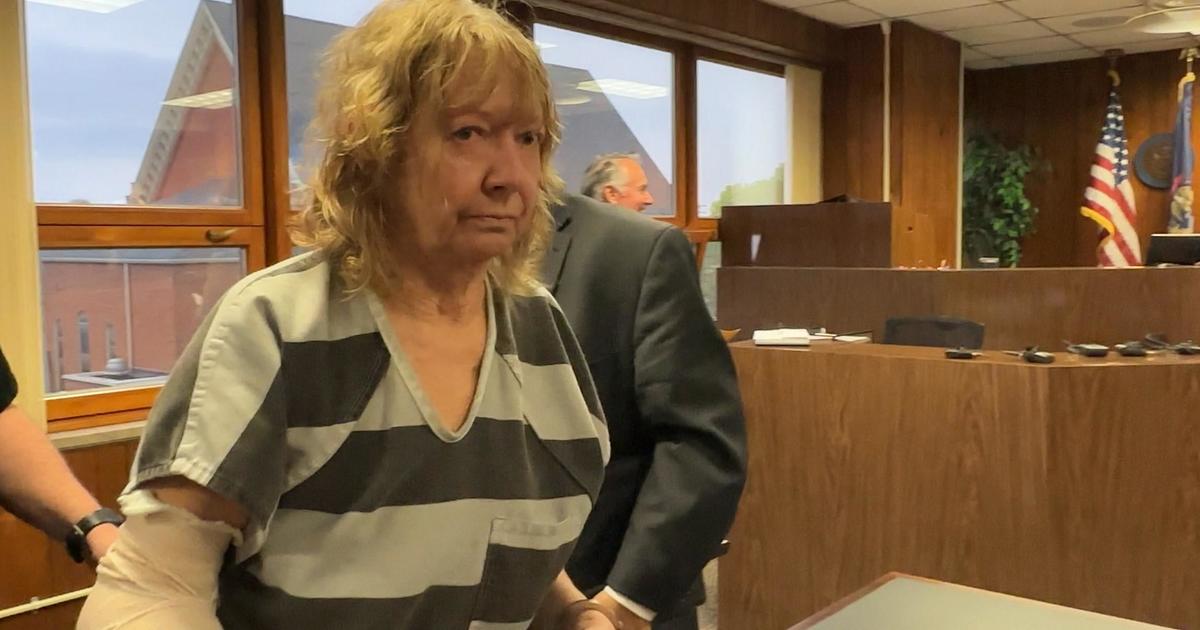Tech Tour Day Four, Part Two: Fired Up Chips At CMU

My second stop Monday was Central Michigan University, where I began by seeing tourism and recreation majors getting a deep course in managing Web sites. I met a student entrepreneur who's designing a business that will integrate your credit, debit and rewards cards to tell you what's the best deal every time you buy something. I saw sophisticated testing equipment for vertigo and balance. And I saw video games being developed for soliders with traumatic brain injuries, intended to improve their coordination and balance.
First, I met with Patty Janes, professor of recreation, parks and leisure services administration, who developed a course called "Digital Media in Recreation, Tourism and Events" that's intended to teach CMU students in the recreation field to think about how new media enhances marketing, consumer relations and general business practices.
An iPad is among the list of required materials for the course. CMU students also have access to specialized publishing software, digital recorders, video cameras and GPS equipment.
Digital media skills are increasingly critical for parks, recreation, hotel and resort staffers, Janes said, not just for venue marketing but also for on-site communications with guests -- and CMU students were reporting back after graduation that the university needed to add a course in them.
The students study everything from Internet copyright to getting the bit flow rate right for users of streaming media.
The course was developed by Daniel Bracken, associate director of the CMU Faculty Center for Innovative Teaching, and Mike Reuter, IT manager for the College of Education and Human Services.
Cariann Buxton, a CMU commercial recreation major from Ionia, said the skills will be critical in her future goals of planning special events.
"I'm learning a lot about the technology, the good, the bad, and the ugly, and I'm looking behind the scenes at some Web sites and learning how they work," she said.
Bracken said the course aims to move the students "from being consumers of the Web to creating content intelligently and effectively."
*******************************************************
Over lunch in the Bovee Center, I met with Daniel Pearson of Waterford Township, a senior entrepreneurship major with a terrific business idea -- a personal payment account that would integrate all of your credit and debit cards and your rewards programs, so when you buy something, it will tell you which card or program offers you the best deal. It has the working title 'The Hybrid Card,' but Pearson said, "I'm not married to that."
Pearson has done well with the concept in several business pitch competitions.
Pearson said he also wants the program to analyze users' spending over time to tell you which cards give you the best deals and rewards.
**********************************************************
I ended my CMU visit at the university's spectacular Dow Health Professions Building, a 175,000-square-foot architectural and functional triumph that's now undergoing an expansion to house a medical school.
First up, a visit to the Central Michigan Audiology Clinic, where a new $226,000 rotational chair helps doctors figure out what's amiss in patients with balance difficulties. The chair was paid for with funds from the university, CMU's College of Health Professions, CMU's Department of Communication Disorders and CMU's Carls Center for Clinical Care and Education. The genial M.Dawn Nelson, associate professor of audiology, showed me around.
And finally, I met with a cross-disciplinary team of computer coders, graphics experts, psychologists and physical therapists who are developing a virtual reality game to help soldiers with traumatic brain injury regain coordination and balance.
The research is funded by a $400,000 Department of Defense grant.
Traumatic brain injuries have become a signature wound of the ongoing wars in Iraq and Afghanistan. They can result when shock waves from roadside bombs ripple through soldiers' brains, causing damage that sometimes leaves no visible injuries but can cause lasting mental and physical impairment.
"Virtual reality is a relatively new form of rehabilitation and we will be designing a series of games using 3-D technology to help soldiers work on both motor and cognitive abilities," said CMU physical therapy professor Ksenia Ustinova.
The CMU team is using equipment such as an 82-inch 3-D flat screen TV, laptop computers, specialized cameras and infrared lights to create a virtual environment for research subject participants.
The goal is to finish a series of games by November. This fall, the CMU team will recruit soldiers with a range of traumatic brain injuries to test the games through next spring. The idea is to improve their coordination and agility. Once this research is complete, the team will make necessary changes or enhancements and get the series up and running -- and available for free by computer download.
*******************************************************
And that's it. Just another day on the road with some of the biggest brains in Michigan. Tuesday's it's on to Ferris State University in Big Rapids, which got its start as a private junior college, but now offers renowned high-tech education in a variety of fields. Let's go!



